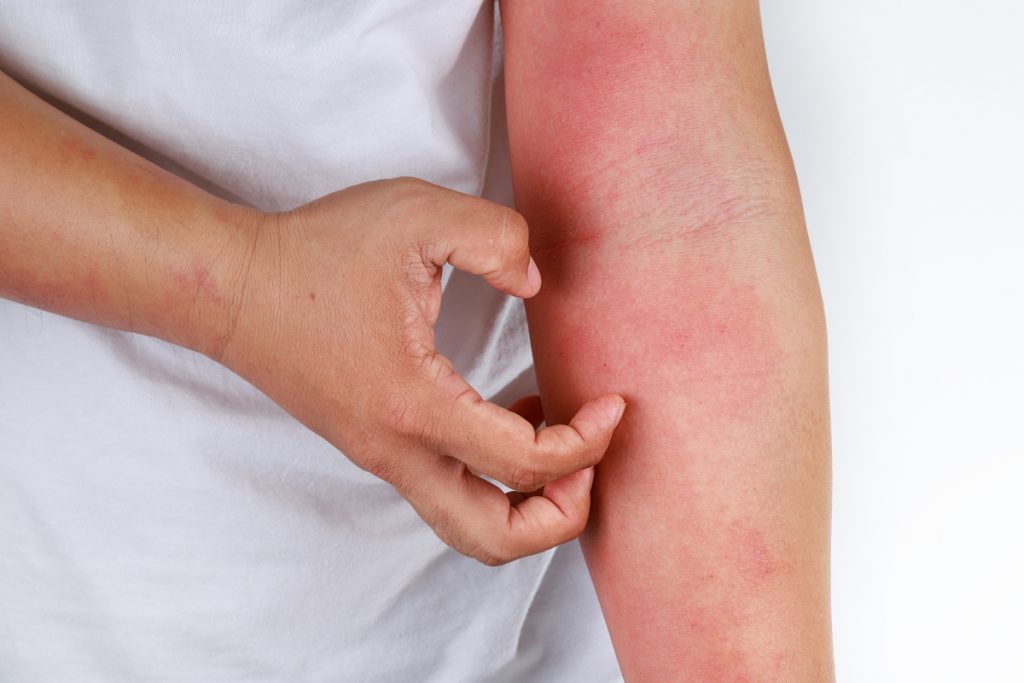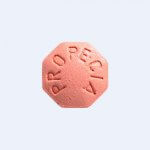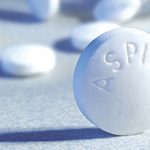Many people are predisposed to suffer from anaphylaxis. This is a severe disease, which causes different allergic reactions. Some of those reactions are even life-threatening. Some people are simply more vulnerable to allergies and so, should be extremely cautious. People may suffer from a rash, low pulse, and shock (also known as anaphylactic shock). These negative consequences may be fatal for life.

The disease causes several typical symptoms. Commonly, they appear soon after contact with the allergen. These are:
- Pain in the abdomen;
- Anxiety and confusion;
- Severe coughing and sneezing;
- Wheezing
- Rash;
- Itchy skin;
- Slurred speech
- Swelling of the face;
- Difficulty breathing;
- Low pulse;
- Shock;
- Problems with swallowing;
- Swelling in mouth and throat.
If these symptoms appear and don’t withdraw, anaphylaxis is diagnosed. The main factors that lead to this severe state can be:
- Insect bites (wasps, bees, fire ants);
- Some foods (tree nuts, peanuts, milk, eggs, soy, some kinds of fish, etc.);
- Some medications (including antibiotics);
- Latex.
As soon as a person begins to suffer from strong allergic reactions, it’s important to immediately call 911. The state should be treated as quickly as possible to avoid a fatal outcome. Oftentimes, people lack oxygen and cannot breathe because of swellings in the mouth and throat. Thus, oxygen should be administered through a special mask. Besides, anaphylaxis should be treated with special medications, which will be discussed hereafter.
What Medications Can Help Against Anaphylaxis?
You should know that many medical preparations can treat anaphylaxis. We propose some of the most popular and so, effective variants. Mind that a concrete preparation must be appointed only by a specialist in the field.
Epinephrine
Epinephrine is probably the most widely spread preparation that treats the symptoms of severe allergic reactions. This powerful remedy is known for quick narrowing of blood vessels. Thus, releases the airways and a person can freely breathe. Its effects help to overcome decreased blood pressure, skin itching, hives, and other allergic reactions. If you’re vulnerable to heavy allergies, your doctor will recommend always having auto-injectors with you to instantly prevent the symptoms. EpiPen, EpiPen 2-Pak, Adrenalin, Auvi-Q are good alternatives, which also contain Epinephrine and show similar effects of treatment.
It’s important to define whether Epinephrine can be safely administered. Read this information in the instruction on the site. It’s not recommended for people who suffer from:
- Certain psychological ailments (such as depression of all types, etc.);
- Ailments of the cardiovascular system;
- Increased blood pressure;
- Thyroid disorder;
- Diabetes.
Pregnant women shouldn’t administrate it too. The medication can potentially damage the mother and baby. You should know that this medication can cause some adverse reactions.
Promethazine
Another popular treatment of anaphylaxis is Promethazine. Other brand names are Phenergan, Promethegan, Phenadoz, Antinaus 50, etc. All these preparations have the same effects. Promethazine is quite effective against allergies of different kinds. It’s useful to treat itching, sneezing, hives, skin rashes, complications with digestion, etc.
The preparation acts through the blockage of a natural chemical called histamine. It’s even used to reduce pain after surgeries and overcome sleep deviations. However, it’s not used to handle asthma and so, it won’t help if a person with an allergy is suffocating.
You should cautiously take the preparation. There are several contradictions to use. These are:
- Different breathing disorders (including asthma);
- Allergies to sulfite;
- Seizures;
- Weakened immunity;
- Urination complications;
- Heart ailments;
- Enhanced blood pressure;
- Liver ailment, etc.
The preparation is strictly forbidden for small children. Read about the side effects before ordering it.
Medrol
You can also take Medrol to treat anaphylaxis symptoms. Its generic name is methylprednisolone. This is a specific steroid. This drug prevents different kinds of inflammatory reactions. Thus, it’s effective against allergic disorders.
You should not take the drug if you have a fungal infection. Amongst other contradictions are:
- Thyroid disorder;
- Eye herpes;
- Stomach ulcers;
- Some mental illnesses;
- Liver disorders;
- Enhanced blood pressure;
- Osteoporosis, etc.
Warnings
Never take any of these preparations without the permission of a specialist in this field. You may be contraindicated to treat with some of them. Don’t forget that all these and similar preparations may cause adverse reactions. Always take the preparations according to the instructions of your doctor. Never exceed the dosage.



